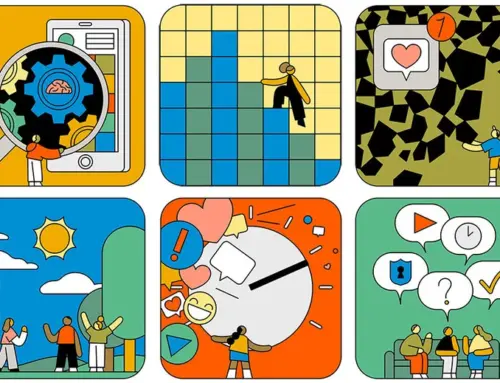This story originally appeared in Teen Vogue
In this op-ed, eating disorder survivor Ellen Ricks talks about her experience while watching the Netflix show Insatiable.
Having lived with an eating disorder for most of my life, it’s safe to say that I was a tad wary about one of Netflix’s newest shows, Insatiable, about a former “fat” girl, Patty, getting revenge on her enemies, via beauty pageants and occasional murder. Many have called the show fatphobic after seeing thin actress Debby Ryan wearing a fat suit in the trailer. There was even a petition to have Netflix cancel the show before its premiere, with more than 230,000 signatures. But the petition didn’t take: On August 10, Netflix released all 12, 46-minute episodes. In response to the criticism, Netflix’s original series vice-president Cindy Holland said the message of the show was misinterpreted, according to ABC News. Series creator Lauren Gussis released a statement on Twitter, titled “This is my truth,” and opened up about her traumatic experiences with an eating disorder, bullying, and suicidal ideation. The show, she wrote, “is a cautionary tale about how damaging it can be to believe the outsides are more important.” She asked viewers to give the show a chance, and despite the fact that a show like this could be very triggering for people like me, it could also open conversations about body image. So, I did.
The message I got from watching the show is that skinny equals strong, which is the mindset for many anorexics — I know it was mine for many years. I used to believe wholeheartedly that I was stronger and better than others because I could deny myself food; I wasn’t stronger for starving my body, I was weakening it. Even knowing that, watching Patty lose weight with extreme dieting and liquid fasts was seductive. I kept thinking, “I could do this — she’s fine,” as Patty was doing something self-destructive. As I watched, I slipped back into my dangerous thoughts and unhealthy habits.
Like Patty, I’ve never had a healthy relationship with my body. A serial dieter, I’ve been that child at the Weight Watchers meeting. I’ve collapsed from self-starvation multiple times. For a moment, I thought I had found a kindred spirit in Patty, who also knew what it felt like to be insatiable.
But when she got punched in the face and had her jaw wired shut, the show took a turn from being about body and food issues to being irresponsible about the complexity of eating disorders and extreme weight loss. What they were hoping to position as dark comedy, felt only dark.
Binge eating disorder (BED), is the most common type of eating disorder, yet it can go undiagnosed for a number of reasons, including societal stigma against the “sin” of overeating, and feeling guilty about a percieved lack of self-control, neither of which are the fault of a person who develops BED. Dr. Allison Chase, regional managing clinical director of the Eating Recovery Center in Austin, Texas, says that binge eating disorder is “defined by the repeated occurrence of binge eating episodes, the act of uncontrollably eating large amounts of food. The binge eating episodes are also characterized by rapid eating when not hungry, eating alone because of embarrassment and feelings of disgust or guilt. Binge eating – eating a large amount of food in a time period that is larger than what most would eat in the same time period – occurs, on average, at least once a week for three months.”
The hardest thing about recovery is learning to eat again. For years I denied myself even the simple pleasure of eating a cupcake because all I could think about was its calories; in recovery, I was terrified I would be eating too much and unable to stop. Watching Patty get shamed for eating any portion of food was deeply triggering; I kept asking myself, “Is that how people see me? Am I eating too much?”
Whether Patty has BED or not is never brought up. Instead, the show’s script includes terms like “compulsive eater,” “out of control,” “sick,” and “obese,” seemingly as synonymous with BED. Lumping them all together creates deadly stigmas. Binge eating disorder is a serious mental illness — as serious as anorexia and bulimia — yet it’s rarely talked about as a mental illness because of the stigmas our society has attached to it. The mishandling of such a sensitive issue was again deeply triggering for me. Hearing someone call another person’s eating “out of control” and “compulsive” makes me feel like eating is a bad thing for me, and that I should stay “thin.” It’s that voice in my head — the one I know is wrong — whispering, “wouldn’t it be easy to go back to the old ways?” That voice is a liar.
What’s more, the idea that weight loss can look easy — just get your jaw wired shut (ha- ha!) and don’t eat — is a horrible message to be sending not only to any viewer. It’s also incredibly inaccurate. The sick part of me wonders how much weight would I lose if I got my jaw wired shut.
The title of the second episode, and the theme throughout the season, is “Skinny Is Magic,” and it’s a sentiment you could find in any number of diet books available right now in your local bookstore. But lifelong food issues do not get fixed by losing any amount of weight.
According to Dr. Stuart Koman, president and CEO of Walden Behavioral Care, a treatment center that offers specialized care for individuals and families impacted by all types of eating disorders, “So many people go into these types of [weight loss] procedures having unrealistic expectations of what losing the weight, or changing the body part, will do for them. Unfortunately, what we’re seeing is that food issues actually don’t resolve following weight loss.” That takes dedicated work, and is often the result of a lifetime of effort.
Insatiable had an opportunity to educate its viewers on BED and how to get help by teaching Patty how to listen to her body’s needs, and trying to help her create good coping habits. Instead, every character in the show pushes Patty into a different eating disorder. During the season, Patty binges and gains an unnoticeable 10 pounds. Instead of helping Patty realize that gaining 10 pounds — or, heck, even the 70 pounds we’re constantly reminded she lost — is not the end of the world, and to love her body, she is encouraged to go on an extreme diet. Her coach and friends starve her and give her laxatives so she can “be ready” in time for a pageant. One character tells Patty, “This week is all about sweating and starving.” In short, this dramatic reaction to gaining a few pounds is forcing Patty into habits any anoretic would recognize instantly. She said she felt sick from the laxatives and lightheaded from starving, but also said she felt “stronger” for it. Dr. Rachel O’Neil, an Ohio-licensed professional clinical counselor and Talkspace Therapist, warns against showing these types of extreme diets; “Normalizing behaviors like starving oneself and abusing laxatives sends a dangerous message to those who may have some characteristics of eating disorders (e.g., perfectionism, control),” she says.
Skinny is not magic — living a healthy life with food is.
What’s most disappointing about Insatiable is that it had so much potential. It could have been an interesting show about a young woman struggling with binge eating disorder as she competes in beauty pageants, trying to gain self-love and body positivity. Instead, it falls for the same tropes that so many shows have in the past when talking about fat people and their experiences with diets; it cops out to lazy stereotypes and harmful stigmas, in this case, in the name of “satire.” The show can deeply trigger people with existing eating disorders, and that’s exactly what happened to me.
“It’s a kind of confirmation from a ‘reliable source’ that these behaviors work,” says Koman. “Glamorizing behaviors like this are dangerous to any adolescent, but especially those with eating disorders. This is support for their worldview. ‘If Patty’s character is doing it on national television, then what I’m doing can’t be that bad!’ And that is what they are looking for. It’s a terrible message that will absolutely trigger kids that don’t have the filters to understand that this is a satire. This show is not harmless fun.”
If you are struggling with an eating disorder and are in need of support, please call the National Eating Disorders Association Helpline at 1-800-931-2237. For a 24-hour crisis line, text “NEDA” to 741741.
You can also reach out to Walden by completing the form on this page or email us at intake_coordinators@waldenbehavioralcare.com.







